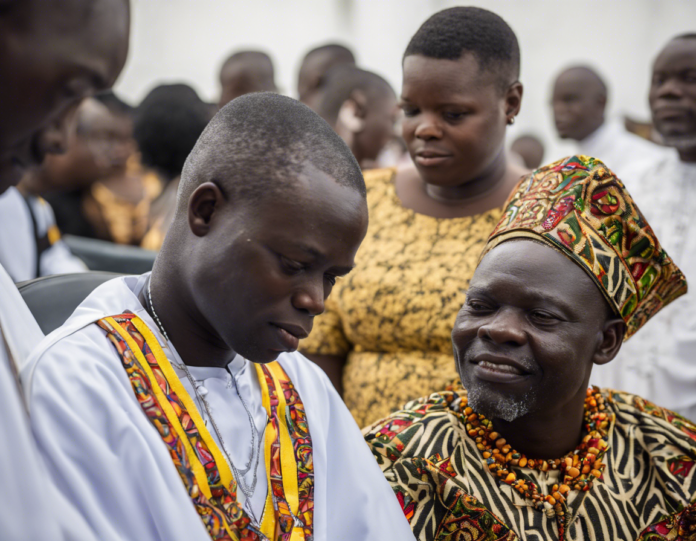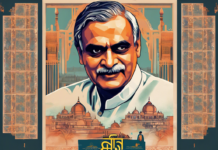Introduction:
Marriage is a sacred institution that holds a significant place in the various religions and cultures around the world. In Ghana, marriage is not only a social and legal union but also a spiritual bond that is heavily intertwined with religious beliefs and practices, especially within the context of the Ghanaian priesthood. This article delves into the complex intersection of marriage, religion, and the Ghanaian priesthood, shedding light on the unique dynamics at play and the implications for individuals and communities.
Marriage in Ghanaian Culture:
Marriage in Ghana is a multifaceted institution that encompasses both traditional and modern practices. In Ghanaian culture, marriage is considered a vital rite of passage that signifies the transition to adulthood and the continuation of family lineage. The institution of marriage holds deep cultural significance, with elaborate ceremonies and rituals that vary across different ethnic groups in the country. Traditional marriage customs such as bride price payment, libation pouring, and family consultations play a central role in the union of two individuals.
Religion in Ghana:
Ghana is a religiously diverse country with a blend of Christianity, Islam, and traditional African religions shaping the spiritual landscape. Christianity is the dominant religion in Ghana, with a large percentage of the population identifying as either Catholic, Protestant, or Pentecostal/Evangelical. Islam is also present in significant numbers, particularly in the northern regions of the country. Additionally, traditional African religious beliefs and practices continue to have a strong influence on Ghanaian society, especially in rural areas.
The Ghanaian Priesthood:
The Ghanaian priesthood, whether in Christian denominations or traditional African religions, holds a position of power and authority within the spiritual realm. Priests are revered figures who act as intermediaries between the divine and the earthly realm, performing sacred rituals, offering spiritual guidance, and presiding over important ceremonies. In Christianity, priests are ordained ministers who serve the religious community through preaching, sacraments, and pastoral care. In traditional African religions, priests often hold ancestral or spiritual roles, connecting the living with the spiritual world.
Intersection of Marriage, Religion, and the Ghanaian Priesthood:
The intersection of marriage, religion, and the Ghanaian priesthood gives rise to a complex web of beliefs, traditions, and expectations that influence individuals and communities. For individuals seeking to enter the priesthood, marital status often plays a crucial role in their eligibility and acceptance into religious leadership roles. In some Christian denominations, such as the Catholic Church, priests are required to take a vow of celibacy and remain unmarried as a sign of their dedication to God and the church. This celibacy requirement sets priests apart from the general population and can be a source of both admiration and controversy.
Challenges and Dilemmas:
The intersection of marriage, religion, and the Ghanaian priesthood also presents unique challenges and dilemmas for individuals who are already married or wish to marry after entering the priesthood. In cases where priests are permitted to marry, balancing the demands of religious duties with the responsibilities of married life can be a daunting task. The priesthood’s commitment to serving the spiritual needs of the community often requires significant time and energy, leaving little room for personal relationships and family life.
Implications for Society:
The intertwining of marriage, religion, and the Ghanaian priesthood has broader implications for Ghanaian society as a whole. The role of priests as moral authorities and spiritual guides places them in a position of influence and leadership within their communities. The values and beliefs they uphold regarding marriage, family, and relationships can shape societal norms and attitudes towards these issues. The way in which the priesthood navigates the complexities of marriage and celibacy can impact how individuals in the congregation perceive and approach their own relationships.
Conclusion:
In conclusion, the intersection of marriage, religion, and the Ghanaian priesthood reflects the intricate tapestry of beliefs, traditions, and practices that define Ghanaian society. The dynamics at play in this intersection highlight the complexities and nuances of balancing spiritual devotion with personal relationships and societal expectations. As Ghana continues to evolve and embrace modernity, the role of the Ghanaian priesthood in shaping attitudes towards marriage and family will remain a critical aspect of the country’s cultural fabric.
Frequently Asked Questions (FAQs)
1. Can priests in Ghana marry?
In some Christian denominations in Ghana, such as the Anglican Church, priests are allowed to marry. However, in other denominations like the Catholic Church, priests are required to take a vow of celibacy and remain unmarried.
2. How does the Ghanaian priesthood view divorce and remarriage?
Views on divorce and remarriage within the Ghanaian priesthood vary depending on the religious denomination. While some denominations may permit divorce and remarriage under certain circumstances, others uphold stricter teachings on the sanctity of marriage.
3. Do traditional African religions in Ghana have specific marriage rituals?
Yes, traditional African religions in Ghana have specific marriage rituals that vary by ethnic group. These rituals often involve ancestral blessings, libation pouring, and symbolic gestures to signify the union of the couple.
4. How does being married affect a priest’s role in the Ghanaian community?
Being married as a priest in Ghana can impact the priest’s role in the community. Some communities may view married priests as more relatable and understanding of family dynamics, while others may expect celibacy as a sign of spiritual devotion.
5. Are there any gender-specific roles for priests in Ghanaian society?
In some religious traditions in Ghana, there are gender-specific roles for priests. For example, in certain traditional African religions, there may be specific roles and duties assigned to male and female priests based on spiritual beliefs and cultural practices.












